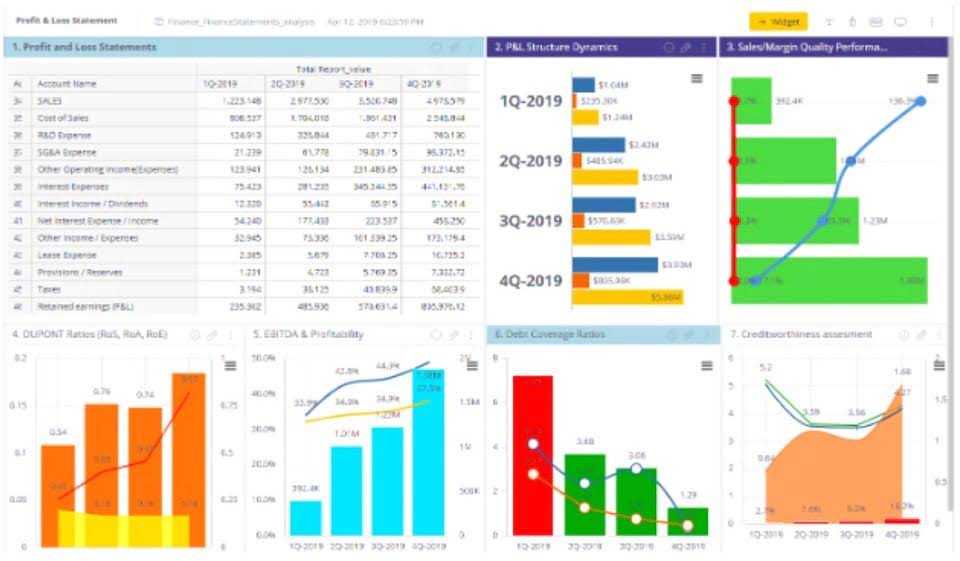Content

This increases for joint filers, such as partners running a retail business, to $340,100. Payroll apps like Gusto, ClockedIn, and Homebase can assist you when managing payroll and paying employment tax.
This typically applies to goods and services purchased outside of the state where you conduct business. Quarterly estimated https://www.bookstime.com/ tax payments for each respective quarter are due every April 15, June 15, September 15, and January 15 .
You can use the business version of tax preparation software programs to calculate this tax or use Schedule SE. Add the total taxable amount to your other taxable income on your personal tax return. That's because about 75% of small businesses are not corporations. This large percentage of small businesses are considered "pass-through" entities, which means they pay tax at the personal tax rate of the owners.

She is a library professional, transcriptionist, editor, and fact-checker. The Internal Revenue Service offers special tax help to individuals and businesses hurt by a major disaster or emergency. Energy-related tax incentives can make home and business energy improvements more affordable. There are credits for buying energy efficient appliances and for making energy-saving improvements. But the tax advantages, pass-through profits, and management flexibilities still make LLCs a popular option. Your tax situation depends on doing your research to determine which legal entity best suits your needs.
Plus, in addition to income taxes, businesses also have to pay payroll taxes, unemployment taxes, and other kinds of taxes. No matter your business structure, paying taxes is complicated due to different rate rates, rules, and obligations. For that reason, it’s a good idea to work with a tax professional who is familiar with the regulations in your state. They can help you figure out how much you’ll owe and make sure you’re making all necessary tax payments to the right taxing authorities.
All businesses that make a profit must pay income taxes at the federal level. Many states also impose business income taxes of their own, with similar but not always identical how much do small businesses pay in taxes rules. And let’s go ahead and say after business expenses, deductions and employment taxes (we’ll get to those next), you’re left with $50,000 in taxable income.
Sole proprietorships, partnerships, LLCs, and S-corps use the pass-through method, wherein profits and losses are reported on the business owner’s and shareholders’ personal tax returns. This means that profits (i.e income) are taxed at the personal rate. A multi-member LLC has to file certain tax forms with the IRS, including Form 1065, U.S.

The need for occupational licenses is receiving increased attention from business and government alike. A July 2015 White House report found that about a quarter of all U.S. workers now require a license to do their jobs, and that the share of state-licensed occupations has risen fivefold since the 1950s. Despite its business-friendly reputation, some factors undoubtedly discourage potential entrepreneurs in Texas. Whether or not these have contributed to the slowdown in business entry rates, they certainly influence decisions on whether to start new ventures.
A corporation is a legal entity separate and apart from its owner. The tax rate in California is 8.84% for non-pass-through entities. For example, if a company has net earnings of $500,000, the franchise tax would be $44,200 paid to the California Franchise Tax Board. Tax deductions and tax credits are the biggest breaks you’ll get from the IRS. Deductions reduce your taxable income, while tax credits reduce the actual amount you owe to the IRS. If you can choose which state your business will operate in, then you may want to consider the small business tax rates by state.
As an employer, you need to register any employee who works for you for more than 24 hours per month with the Unemployment Insurance Fund . You are then required to pay 2% of the employee's salary (1% is your contribution and 1% deducted from their salary) over to SARS on a monthly basis. Unless you have a strong financial background, handling your tax can be one of the most complex aspects of running your own business. If not managed correctly, it could cripple your business and crush your dreams of being an entrepreneur. It's important to determine your federal, state, and local tax obligations before starting your business so as to avoid problems, such as costly penalties, in the future. An experienced business organizations attorney can help you ensure that you are in compliance with all tax obligations, as well as other requirements, imposed on businesses in your industry and location.
As a small business owner in Canada, a portion of your business revenue will go towards paying income tax. This overview gives you the basic information you need to understand self-employment taxes.
Access to venture capital represents another problem for entrepreneurial Texans. While Texas’ venture capital activity is strong, it is far less robust than that seen in other large states such as California and New York . In fiscal 2014, Texas businesses accounted for only 3 percent of all venture capital investments in the U.S., while California’s received 56 percent. No Texas companies were among 2014’s 25 most active venture capital firms. Nearly half of all U.S. startup businesses rely on personal or family assets to finance some portion of their initial costs. In a recent Gallup poll, 68 percent of potential entrepreneurs cited a lack of sufficient personal savings as a barrier to starting a business.
After you’ve gone through the state’s registration process, you are then permitted to collect sales tax on your transactions. The Ascent is a Motley Fool service that rates and reviews essential products for your everyday money matters. By learning about any taxes that apply to your small business upfront, you'll avoid potential pitfalls and be able to spend more time making your business successful.
This allows S corporations to avoid double taxation on the corporate income, as happens with C corporations described above. S corp income is taxable at the owners’ personal tax rates, although the deadline for S corp tax returns is also typically March 15. Sole proprietorships, partnerships, S corporations, and Limited Liability Companies do not pay income taxes. Unless a specific election is made by a small business to be taxed as a C corporation, the IRS considers these various entity types to be “pass-through” entities.
Corporate income and net worth tax returns must be filed on or before the 15th day of the 4th month. The most recent survey, for 2015, is based on the responses of nearly 18,000 small business owners in 36 states.

Then, they’d only have to report $80,000 in income, reducing their tax rate to 22%. Most people are familiar with income tax—individuals must pay income tax on wages, investment income, and gains from the sale of property they own. A corporation, however, must also pay tax on the net income—income after accounting for expenses—it earns each year.
Remember that business expenses could include a home office or workspace. Additional write-offs can include tools, supplies, vehicle expenses, advertising costs, legal costs, and telephone and internet expenses. According to an SBA report, the average effective tax rate for owners of sole proprietorships is 13.3 percent, the small partnerships rate is 23.6 percent, and the S corporation rate is 26.9 percent. There are a number of factors to consider when calculating how much money your small business will need to pay in taxes. Aside from your business structure, local, state, and federal laws may apply to your business. As taxpayers, understanding the factors that impact your small business’s taxes will help when it comes to filing your annual tax report. As you can see, a big benefit of setting up your business as a pass-through entity is that it makes everything simpler when it comes to taxes.
Hopefully you’re not tired yet, because we haven’t even touched on employment taxes. So far, calculating small-business taxes hasn’t been super difficult (if you’ve been on the struggle bus, you could use some tax help).
The capital gains tax rate is based on how long you owned the asset. Learn more about which forms you need with our small business tax preparation checklist.
2020-09-25
